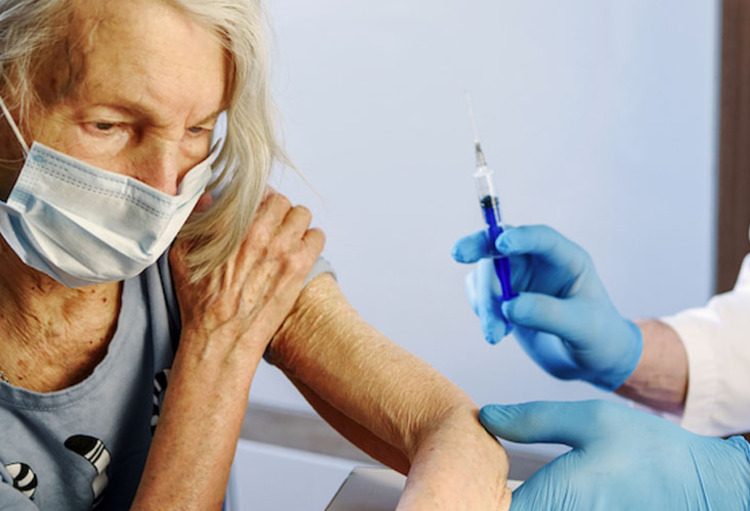While more than half (56%) of people over 85 in Flanders have already had their fourth vaccine dose – also called the second booster – this is the case for less than 3% of the same group in the Brussels-Capital Region.
Belgium's various health ministers last week called on those in the general population who had not yet received their third vaccine dose (first booster), and on those with lowered immunity eligible for a fourth dose (second booster) to still get it.
Specifically for the second booster, the difference between regions is striking: 56% of eligible people in Flanders received a fourth dose, compared to less than 3% in Brussels, and around 5% in Wallonia.
"So far, we have only offered the possibility of another dose, but have not really campaigned as actively as in Flanders, where eligible people did get an invitation to get a fourth dose," Inge Neven of the Brussels health authorities told The Brussels Times.
She explained that the authorities have tried not to push the Covid-19 vaccines too much while the infections and hospitalisations were steadily declining, but added that they will start raising more awareness again now the figures are on the rise.
"Those with reduced immunity already received an invite several weeks ago, but people over 80 years old will now also start getting an invitation to come get their second booster," she added.
Boosting immunity, again
Previously, health officials told The Brussels Times that the second booster is "an offer, not a recommendation" and that "everyone has to decide for themselves, or in consultation with their doctor, whether to take it up," which could be a reason for the lower rates.
Still, the previous booster vaccination for many people in this group already took place over six months ago; and as the vaccine protection decreases over time, a second booster would boost their immunity again, particularly in light of the new Omicron sub-variants.
For virologist Marc Van Ranst, one explanation could be that Flanders' vaccination campaign for the fourth shot started earlier, but the difference also illustrates the situation that existed at the beginning of the pandemic.
Related News
- Health Ministers call on high-risk groups to receive additional Covid-19 vaccination
- New Omicron sub-variant now dominant in Belgium: What does this mean?
- Barely half of over-80s accepted invitation for second booster so far
"At that time, there were also large differences in vaccination coverage between the regions. Brussels, in particular, had a very low vaccination rate at the time," he told Bruzz.
The Brussels health services tried to convince people to get vaccinated in many ways, including through local initiatives, the mobile vaccination buses and many vaccination points.
"The Brussels Government tried very hard and it paid off. It will have to be done again now. We will have to make it as simple and accessible as possible," Van Ranst said, again emphasising the importance of getting vaccinated. "We are tired of the virus, but the virus is not yet tired of us."

